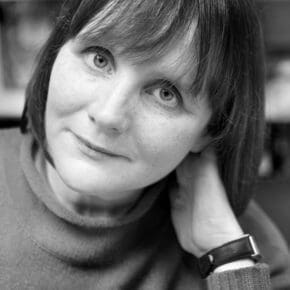When you’re knee-deep into NaNoWriMo, a common concern is about how to get it done properly. It can just be a case of getting word after word down on the page, but the best thing about this exciting month is the prospect of finishing it with a piece of work that’s got legs — not something that’ll go straight in the wastepaper basket.
Tips from the authors
Many writers go into NaNoWriMo without giving much consideration to the plot of their story, but a little planning ahead can often save some serious headaches down the road. We spoke to a number of published authors to see how they go about planning their writing – or not, as the case may be.
Sarah Hilary
Winner of 2015’s Theakstons Old Peculier Crime Novel of the Year Award, Sarah Hilary knows something about writing successful fiction, and likes to know a little about where her story is headed.
‘I don’t plot as such,’ says Sarah. ‘I do a rough story “treatment”, and then get stuck in. I do, however, keep lots of notes of possible twists, and I try to have at least two really good ones that are fundamental to the story.’
Although NaNoWriMo is necessarily about taking risks and experimentation, you may find it useful to have a few set-pieces, scenes and story points in the back of your mind to be used or adapted to fit in with what you’ve already written.
‘Another good tip,’ says Sarah, ‘is to keep a notebook of questions to ask your characters, or about your characters, or about your story, and withhold the answers from the reader.’
Knowing the answers to these questions will give you, the author, steadier ground to build up from, but also withholding them from the reader will entice them to read on and find out.
I tend to have loose plans and fill in the gaps as I go along.
– Irenosen Okojie
Heidi Rice
Bestselling author Heidi Rice is no stranger to NaNoWriMo, and in this article she outlines her experience with it.
Regarding planning, Heidi says, ‘I don’t as a rule plot, but you do need some semblance of an idea before you start.
If you spend hours – or even waste days – trying to figure out what you’re going to write for a certain scene you’re screwed, because you will already be waging an uphill battle against that wordcount in days to come.’
Irenosen Okojie
Irenosen Okojie, author of Butterfly Fish, finds that taking a more relaxed approach to planning can be useful: ‘I tend to have loose plans and fill in the gaps as I go along.
For me, that keeps the writing exciting and leaves room for those special moments to appear. I know that other writers prefer to lay a more concrete plan down before they begin, however.
‘Ultimately,’ says Irenosen, ‘you’re feeling your way through the process, and some characters and ideas can start off more fleshed out than others. Try both ways, see how you feel and what you enjoy most.’
There are many different ways to write a novel, but having some flexibility as you work can be very useful.
– Paul Kingsnorth
Paul Kingsnorth
The Wake author Paul Kingsnorth also shared his planning process with us.
Paul says, ‘The Wake was a novel that evolved as it went along. The character of the narrator suggested the kind of ending it might have fairly early on to me, but although I had a rough sense of where the journey was going, I didn’t plan it out beforehand.
‘I knew the direction of that journey fairly early on,’ says Paul, ‘but I was quite a long way into the novel before I understood where exactly it was heading. There are many different ways to write a novel, but this kind of flexibility can be very useful.’
Although you might be a few thousand words in, it’s not too late to think ahead for the rest of your story.
Often, inspiration will strike and an opening will present itself to you fully formed. Using that as a starting point, a little loose planning can help guide your writing without stifling your creativity.
With the rest of this month ahead of you, who knows where that could take you?
























